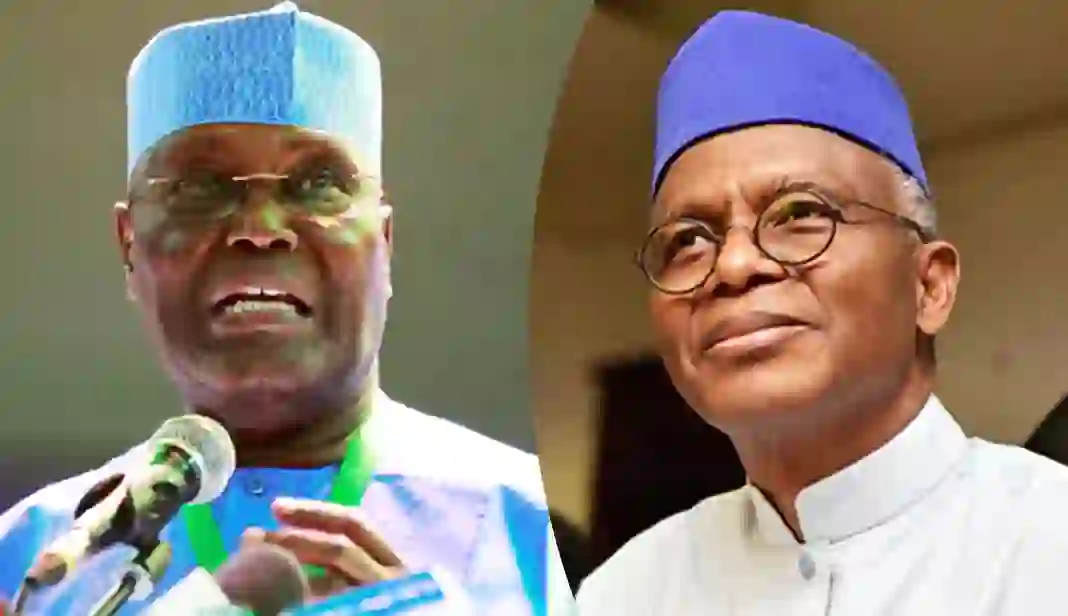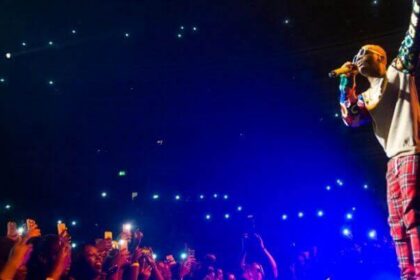Former Vice President Atiku Abubakar has paid a solidarity visit to former Kaduna State Governor, Nasir El-Rufai, days after thugs allegedly sponsored by the ruling All Progressives Congress (APC) disrupted the inauguration of the African Democratic Congress (ADC) in Kaduna.
The incident occurred earlier in the week when ADC leaders gathered at the Arewa House in Kaduna to launch the party’s state chapter. Witnesses said hoodlums invaded the venue, brandishing sticks and other weapons, and unleashed violence that left several party members injured. The attack forced organisers to cut short the event and drew sharp criticism from opposition leaders who accused the ruling APC of attempting to stifle political competition in the state.
Atiku, in a post shared on 𝕏 after his meeting with El-Rufai, condemned the assault, describing it as an attack on democracy itself. He argued that the Tinubu-led APC government had crossed into dangerous territory. “The activities of the Tinubu-led APC administration have turned into a full-blown dictatorship. There is a need to provide a viable alternative platform that will enthrone purposeful governance,” he wrote.
ADC officials also decried the disruption. The party’s National Chairman, Ralphs Okey Nwosu, described the attack as “state-backed thuggery” and insisted that intimidation would not deter the ADC from expanding its presence in the North. He called on security agencies to investigate and bring the perpetrators to justice. Kaduna ADC leaders further alleged that the violence was meant to intimidate El-Rufai and discourage his growing involvement with the party’s activities.
The solidarity visit from Atiku underscored the broader political implications of the Kaduna incident. Atiku, who was the presidential candidate of the Peoples Democratic Party (PDP) in the 2023 elections, has been a vocal critic of Tinubu’s administration, often highlighting what he views as its failures on the economy, governance, and security. His decision to visit El-Rufai, a former APC governor now linked with ADC activities, has fueled speculation about possible realignments within the opposition.
Political analysts suggest the Kaduna attack may serve as a catalyst for opposition leaders to close ranks. Atiku’s comments about a “viable alternative platform” have been interpreted as an openness to coalition-building ahead of the 2027 general elections. While no formal alliance was announced during his meeting with El-Rufai, the symbolism of two influential northern politicians standing together has not gone unnoticed.
The APC has not officially responded to the accusations of sponsoring the Kaduna attack, but its supporters have dismissed them as opposition propaganda. Still, the violence has amplified fears about shrinking democratic space and rising political intolerance under the current administration.
For Atiku, the visit offered both a chance to comfort an embattled ally and to reiterate his long-standing warning that democracy in Nigeria is under threat. “Opposition must never be silenced,” he stressed, adding that Nigeria’s political future depends on preserving pluralism and respect for dissenting voices.
With the ADC vowing to press forward despite intimidation, and Atiku hinting at broader opposition unity, the Kaduna attack may end up reshaping Nigeria’s political calculations in the months ahead.





